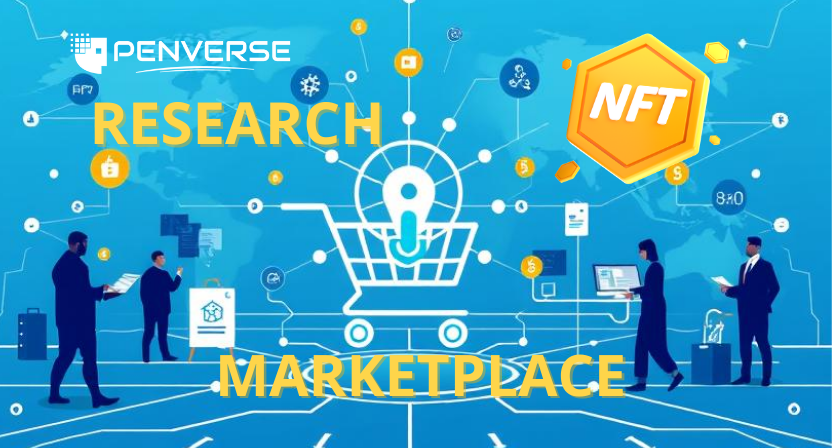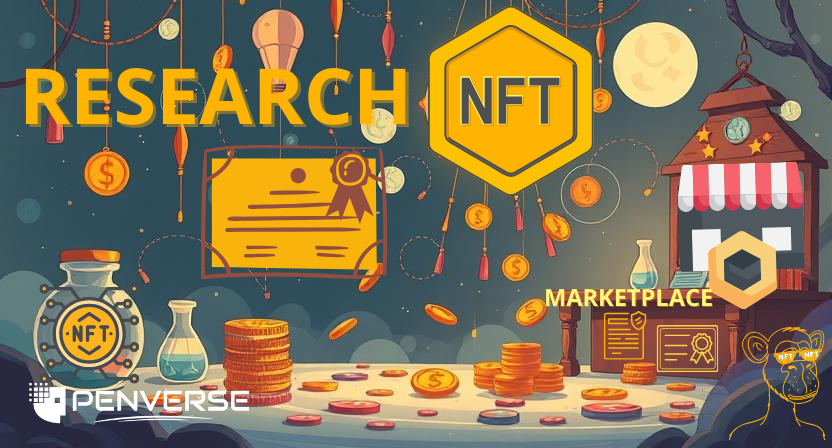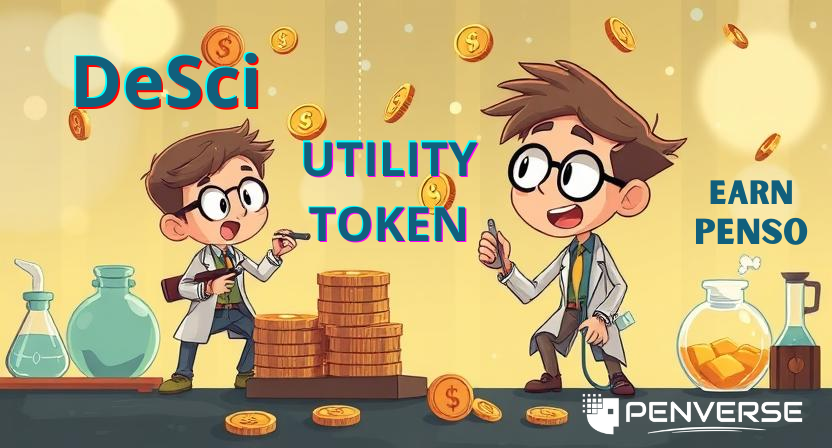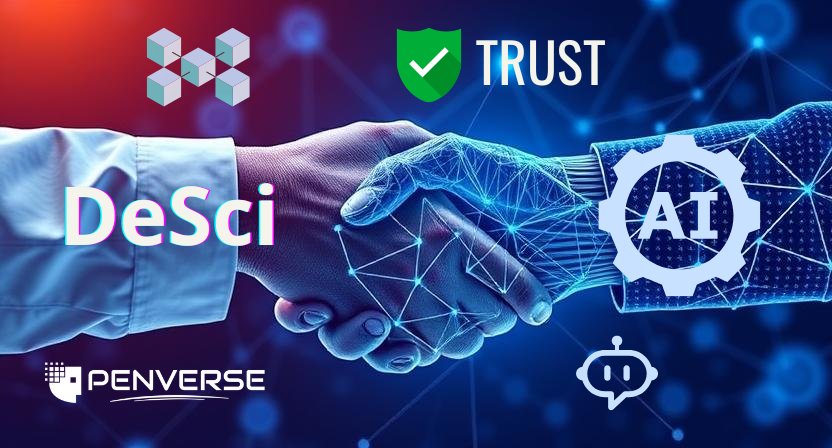AI & DeSci Unite: Accelerating Scientific Discoveries!
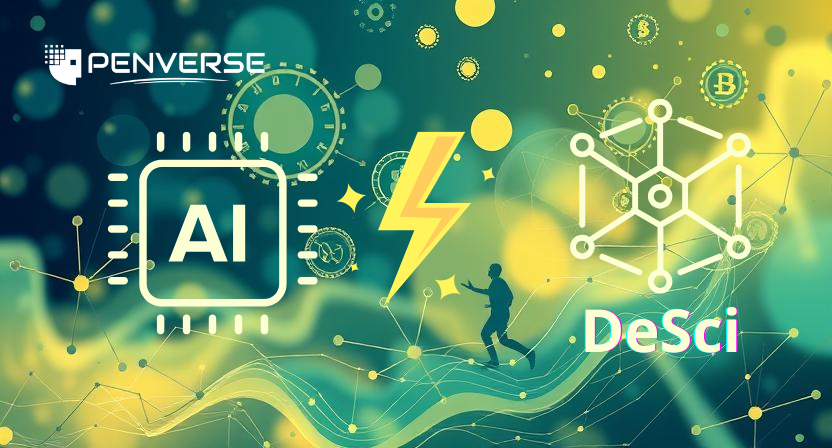
DeSci Challenges
Decentralized Science (DeSci) has emerged as a promising movement aimed at democratizing research and breaking free from traditional institutional control. By leveraging blockchain technology, open-access publishing, and community-driven funding, DeSci enables researchers to collaborate transparently and distribute knowledge more freely. However, despite its potential, DeSci faces significant challenges that hinder its full adoption.
One of the primary obstacles is the lack of automated research processes. While decentralization has improved transparency and accessibility, researchers still struggle with the manual burden of conducting literature reviews, validating findings, and ensuring research integrity. The absence of standardized peer review and decentralized knowledge verification creates skepticism around the credibility of research shared on DeSci platforms.

Moreover, scientific funding in DeSci remains an ongoing issue. Unlike traditional institutions that have established funding mechanisms, many DeSci projects rely on community-driven DAOs (Decentralized Autonomous Organizations), which, while democratic, often suffer from inefficient allocation of resources. Without proper tools to analyze research quality and impact, funding decisions can be misdirected, leaving many groundbreaking ideas unfunded.
Additionally, collaboration across disciplines is still fragmented. DeSci aims to enable global cooperation, but without intelligent systems that can connect researchers, suggest relevant studies, and automate knowledge synthesis, true interdisciplinary collaboration remains out of reach.
This is where Artificial Intelligence (AI) is changing the game for DeSci.
How AI Enhances DeSci and Scientific Progress
Artificial Intelligence, when integrated into the DeSci ecosystem, solves many of the problems researchers face today. AI has the ability to automate labor-intensive research processes, improve funding allocation through predictive analysis, and ensure quality control in a decentralized setting. Here’s how AI is accelerating scientific discoveries within DeSci:

1. AI-Powered Literature Reviews & Research Automation
Traditional literature reviews take weeks or months to complete, with researchers manually scanning thousands of papers to extract relevant information. AI changes this by automating the entire process. AI-powered research agents use Natural Language Processing (NLP) to scan, categorize, and summarize academic papers, drastically reducing the time spent on literature reviews. These AI systems ensure that no critical research is overlooked, and they can even detect connections between seemingly unrelated studies, leading to new discoveries.
2. AI-Assisted Peer Review & Research Validation
One of the biggest concerns in decentralized science is validating the credibility of research. Without a centralized peer review system, the risk of misinformation and low-quality research increases. AI provides an automated, unbiased peer review process, scanning research papers for plagiarism, statistical inconsistencies, and methodological errors. By integrating AI-powered peer review, DeSci platforms can establish trust and reliability in decentralized knowledge.
3. AI-Driven Funding Allocation for Research Projects
Funding remains a major challenge in decentralized science. AI-powered funding models analyze research proposals and use predictive analytics to determine potential impact, feasibility, and innovation levels. Instead of relying solely on community votes or manual assessments, AI ensures that funding is allocated strategically and fairly, prioritizing high-impact projects over popularity-driven funding.
4. AI-Enabled Interdisciplinary Collaboration
Scientific progress thrives when researchers from different fields collaborate. AI facilitates this by mapping out global research efforts and identifying synergies between disciplines. For example, an AI system can analyze research on materials science and bioengineering, connecting experts working on related topics who may not have otherwise collaborated. AI-powered knowledge graphs enable a borderless, decentralized network of scientific minds working together to solve complex global challenges.
AI and DeSci: The Statistics Behind the Revolution
The impact of AI in research is already evident. Studies have shown that:
| Statistic | Source |
|---|---|
| AI-enabled workers complete tasks more quickly and produce higher-quality work. | AI Index Report 2024 |
| 35% of companies have adopted AI services to address labor shortages. | Exploding Topics |
| AI-assisted scientists discovered 44% more materials and filed 39% more patents. | The Wall Street Journal |
| AI has accelerated the simulation of properties in material science and allows faster screening of hypothetical materials. | AWIS |
| AI's influence is expanding across industries, penetrating scientific research, healthcare, and public policy. | Artificial Intelligence 2024: Trends, Impacts, Implications |
| AI has been used to automate the discovery of physical laws of complex systems. | Wikipedia: Applications of artificial intelligence |
| AI-enabled tools have been developed to restore and attribute ancient texts. | Wikipedia: Applications of artificial intelligence |
| AI has been applied to automate the literature screening procedure in medical systematic reviews, enhancing efficiency and accuracy. | Systematic Reviews Journal |
| AI-powered literature review tools can reduce research time by 70%, allowing scientists to focus on experimentation rather than data gathering. | AI Statistics and Trends 2024 |
| AI-assisted collaboration tools have led to a 30% increase in interdisciplinary research partnerships, facilitating groundbreaking discoveries across multiple fields. | AI Statistics and Trends 2024 |
The statistics above highlight the transformative role of AI in accelerating scientific discoveries. By integrating AI-driven automation, research institutions and decentralized platforms like DeSci can overcome traditional inefficiencies, improve funding allocations, and enhance collaboration across disciplines. As AI continues to evolve, its potential to revolutionize research productivity, interdisciplinary partnerships, and funding fairness will become even more apparent, shaping the future of scientific exploration and innovation.
How Penverse is Leading the AI-Powered DeSci Revolution
Among DeSci platforms, Penverse is at the forefront of integrating AI into decentralized research. With an AI-driven approach to literature reviews, funding allocation, and collaborative research, Penverse ensures that scientists can focus on discovery rather than administrative tasks.
1. AI-Powered Literature Review Agents
Penverse employs intelligent AI research agents that scan, categorize, and summarize scientific papers in real time. This drastically reduces the burden on researchers, enabling them to access comprehensive reviews within hours instead of months. These AI agents also suggest related studies and emerging trends, helping researchers stay ahead of the curve.
2. Smart Research Validation with AI-Assisted Peer Review
Penverse utilizes AI-driven peer review mechanisms to evaluate research integrity, detect errors, and ensure transparency. By decentralizing this process and leveraging blockchain for tamper-proof validation, Penverse guarantees that only high-quality research is published.
3. AI-Governed Decentralized Funding
Penverse uses AI models to assess which research projects should receive funding based on innovation potential, feasibility, and long-term impact. By integrating AI with DAO-based voting, the platform ensures that funding decisions are data-driven and unbiased, preventing wasteful allocation of resources.
4. AI-Enhanced Scientific Collaboration
Through AI-powered knowledge graphs, Penverse connects researchers from diverse fields, fostering cross-disciplinary innovation. Whether it's linking a quantum physicist with a bioengineer or an AI researcher with a medical scientist, Penverse facilitates partnerships that lead to transformative discoveries.
The Future of Science is AI + DeSci
The union of AI and DeSci is set to revolutionize scientific discovery, making research faster, fairer, and more efficient. AI automation eliminates redundant manual processes, while decentralized governance ensures that scientific progress is free from institutional constraints.

With platforms like Penverse, AI is no longer just a tool—it is an essential partner in scientific exploration. By combining AI-powered research automation, decentralized funding, and transparent validation, Penverse is shaping the future of open, collaborative, and unbiased science.
🚀 Join the movement—embrace AI-powered DeSci with Penverse today! 🚀

